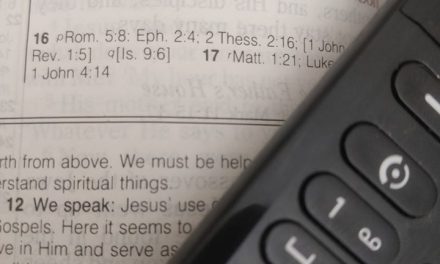The parable of the Talents as an earthly story with heavenly meaning beyond a parable about money or personal stewardship is a parable directed to the church and disciples. The church has received the deposit of faith, the Gospel, the Good News, which Jesus expects the church to invest in soul winning, taking necessary risks, nurturing it and returning it to Him in His Second Coming. Today, the church and leadership decline has led to a worrisome discovery: Serious concerns exist about holiness’s place in the church, particularly in its leadership and evangelistic mission. Holiness is not only optional but also imperative; just as God is holy, His people must be holy; hence, without holiness, no woman can see the Lord (Heb 12:14). Just as worship is the soil in which faith and works can grow, holiness is what empowers worship. There is no easy ride to holiness. We must be humbled and driven along the road of need and repentance. Holiness is about character conformed to Jesus Christ just as healthy churches make character development – growth in holiness; sanctification; spiritual formation their priority.
In the parable of the Talents, the servant who received five talents had everything necessary to produce five more. The servant who received two talents had everything necessary to produce two more. The servant who received one talent had everything necessary to produce one more, but out of fear of what the world would say, he buried it just like the unfaithful servant. The One thing that determines and empowers all other talents has been buried. Hence, the church is not more than a cemetery or museum without holiness. When the Highway of Holiness is buried, the church goes astray. God blesses holiness and not just pastoral talent.
Holiness is not cuddling one another in the assumption that we are God’s pets, but a way of life which corresponds with the will and purpose of God. Holiness is the foundation of God’s life and character, the foundation of all moral values, and stability and meaning to moral standards. The command, “Be ye holy as I am holy, ” tells us that God’s holiness is our pattern and standard. Jesus’ demand, therefore, calls us, “Be ye perfect, as your father in heaven is perfect.” Nothing must lower God’s standard as partakers of His holiness and divine nature. It is important to be warned that God’s judgement will fall on human character at last in the light of His holiness.
Holiness, as the church’s buried talent, brings the infrastructure of Wesleyan revival to the fore. The age of Wesley (1675-1830) was a time of transition and restoration of holiness and outreach within English society. John Wesley, in his ‘Rules for a Helper,’ instructs the early Methodist leaders, ‘Make Holiness into the Lord” your motto. Today, have we forgotten where we have come from and what has shaped us as a church and nation? Any church that buries holiness cannot experience God’s fruitfulness or power but decline and spiritual poverty. Holiness as a buried talent results in a theology, leadership, and lifestyle ‘within a clash of worldviews that offer a confusing cacophony of answers to such questions leading to a dreadful sense of lostness’ in the world.’ Holiness is about producing and nurturing “real Christians,” Christians who would live out the faith they professed. Have we buried messages of experienced religion and holiness which drew heavily from the Bible; ample praise and preaching gatherings (the Societies); small accountability groups (the classes, bands and select societies); works of service and mercy (generally: addressing the needs of the poor or imprisoned)? Holiness produces Christians who visibly and noticeably love God with all their heart, mind, soul and strength and their neighbours as themselves. Are we burying the societies, classes and bands that grew out of the concern for a renewal of the sense of Christian community?
Holiness is made possible through the death of Jesus Christ, who paid the penalty for our sins. The wage of sin is death, just as living in sin also hinders fellowship with both God and other believers. Holiness as talent is given when we put our trust in Jesus, receive His righteousness and the gift of the Holy Spirit. Holiness leads to joy, peace, love, and hope. Holiness as consecration summons us to sing the hymn by Frances Ridley Havergal prayerfully:
Take my life, and let it be
consecrated, Lord, to thee;
take my moments and my days,
let them flow in ceaseless praise.
Take my hands, and let them move
at the impulse of thy love;
take my feet, and let them be
swift and beautiful for thee.
Take my voice, and let me sing
always, only, for my King;
take my lips, and let them be
filled with messages from thee.
Take my silver and my gold,
not a mite would I withhold;
take my intellect, and use
every power as thou shalt choose.
Take my will and make it thine;
it shall be no longer mine.
take my heart, it is thine own;
it shall be thy royal throne.
Take my love; my Lord, I pour
at thy feet its treasure store;
take my self, and I will be
ever, only, all for thee.











Recent Comments